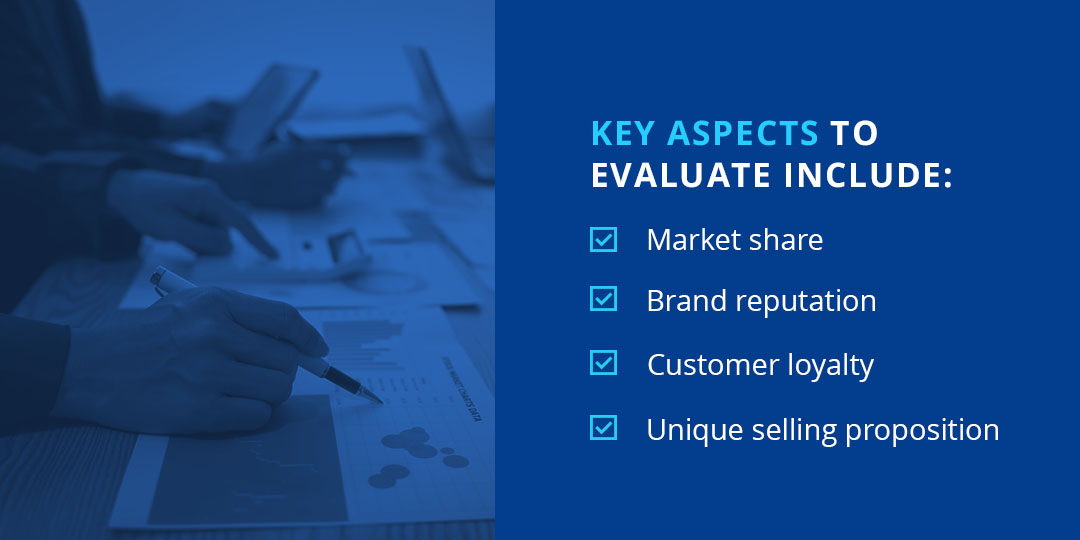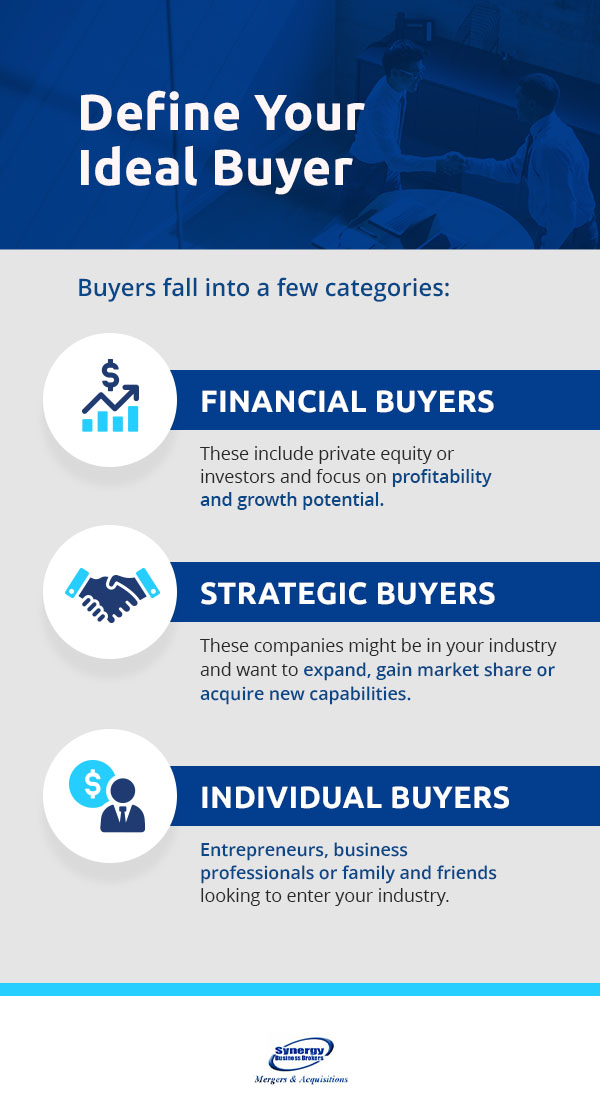
Blake Taylor
What Is the Best Way to Sell a Profitable Business?
Selling a profitable business is one of the most significant financial decisions you can make as a business owner. A …
7 MIN READ
Read More

Selling a company is one of the most significant financial and personal decisions an owner can make. Whether you’re retiring, looking to move on to new ventures, or cash in on years of hard work, preparing your business for sale will help you maximize its value and secure a deal that aligns with your goals. Learn how to prepare a business for sale.
An exit strategy can help you avoid rushed decisions and financial pitfalls. Here’s how to approach your business sale with confidence and clarity.
Before you begin the sales process, ask yourself:
Some business owners assume they can sell their business in a few months, only to discover that the process is more complex. Your exit timeline will depend on how prepared your business is today. If you need to sell within a short window, focus on organizing financials, cleaning up operations, and working with professionals to expedite the process.
If you have more time, focus on maximizing business value, expanding revenue streams, and making the company more attractive to buyers.
Why do you want to sell your business? This may seem like a simple question, but having a clear answer is crucial. Buyers will ask why you’re selling, and your response can impact their confidence in the purchase. Common reasons for selling include the following:
Each reason carries different implications. If you’re retiring, buyers will want reassurance that the business can operate without you. If you’re selling because your business has been declining, buyers may scrutinize your revenue and debt more closely.
Your exit strategy should be aligned with your broader life goals. Determine how much money you need from the sale to maintain your lifestyle and whether you want to stay involved in the business post-sale or prefer a clean break.
If your goal is financial security, you may need to structure the sale to maximize cash flow, like an all-cash deal or installment payments. If you’re open to staying involved, you might consider seller financing or an earn-out agreement, where you continue earning based on the business’s performance post-sale.
Factors that affect business valuation include:
Before looking into numbers, it’s crucial to understand how businesses like yours are valued in the market. Factors that affect worth include:
Buyers will compare your business to others in the market, so you must assess your competitive standing. Key aspects to evaluate include:

If your business is well-positioned in a growing industry with strong brand recognition and recurring revenue, it may command a higher valuation than competitors with unstable sales and weak customer commitment.
Buyers will analyze your company’s financial health to determine its profitability, stability, and risk level. Here are some documents you should get in order.
Also known as income statements, these documents show how much revenue your business generates and how much profit remains after expenses. A minimum of three years of profit and loss statements is typically required, though more is preferable for demonstrating long-term financial stability.
Potential buyers may look for expense management, profitability, and revenue trends like whether revenue is growing, stable, or declining.
Balance sheets provide a snapshot of your company’s financial standing at a given moment. Buyers use balance sheets to assess your company’s financial strength and liquidity. They show:
A business that generates solid revenue but struggles with cash flow can be a red flag for buyers. Your statement should demonstrate the following:
Potential buyers will want to see at least three to five years of tax returns to verify your business’s financial legitimacy and tax compliance. These documents provide a clearer picture of actual revenue and expenses, evidence that taxes have been paid correctly, and a way for buyers to cross-check your reported earnings. Buyers may question financial transparency if your tax returns show discrepancies or aggressive tax strategies that lower reported income.
Buyers will examine your customer invoices and outstanding debts to suppliers to assess:
Financial projections help prospective buyers understand your business’s potential. This document can showcase revenue growth, market expansion, cost-saving strategies, and anticipated profit margins. Projections should be realistic, data-driven, and supported by industry trends, customer demand, or pending contracts.
When you sell your business, the Internal Revenue Service (IRS) — and state tax authorities — classify your proceeds into different categories, each taxed at different rates. The two main types of taxation on a business sale are:
Whether your business is an asset sale or stock sale impacts your tax burden. An asset sale involves you selling the individual assets of the business. This could be equipment, goodwill, or customer lists. The IRS treats each asset differently for tax purposes, leading to a mix of capital gains and ordinary income taxes.
A stock sale entails you selling ownership shares of the business entity itself. The entire gain is taxed as long-term capital gains if you’ve owned the business for over a year.
In addition to financial documentation, sellers will need to gather other necessary paperwork to maintain momentum in the sale process. These include:
Once your business is ready for sale, the next step is identifying and securing the right buyer. Finding the right buyer is about finding someone who values your business, aligns with your goals, and has the financial and operational capability to complete the transaction. Here’s how to find your ideal buyer.
It’s important to keep an open mind to what types of buyers might purchase your company. However, it can be helpful to have an idea of what kind of buyer best suits your business. Buyers fall into a few categories:

Finding the right buyer requires casting a wide net while maintaining discretion. Here are some ways to find serious buyers:
While you may undergo the selling process alone, gathering a team of trusted advisors can help you avoid mistakes. These professionals provide expertise in valuation, negotiation, legal matters and financial structuring so you can make informed decisions. Here are the advisors you need when selling your business.
An accountant or tax advisor can assist you in structuring the sale to minimize tax liability and maximize after-tax proceeds. They achieve this by helping:
Since a business sale involves legal agreements, liabilities, and compliance risks, having a skilled attorney will legally protect your interests and ensure the transaction follows all regulations. They can assist with:
A financial advisor helps you manage and invest your proceeds wisely in several ways. If you’re retiring, they help you structure assets for a stable income. They can also offer advice on reinvesting proceeds for wealth growth or assist with estate and tax planning.

A business broker or mergers and acquisitions advisor acts as an intermediary between you and potential buyers so you can get the best possible deal. They assist with the following:
Preparing to sell your business requires an understanding of what makes your business valuable to potential buyers. How you prepare will impact how quickly your company sells and how much you walk away with. Here are the reasons why proper preparation is essential.
A structured, operational, and financially healthy business is inherently more valuable. Buyers aren’t just purchasing your revenue stream — they’re investing in stability, future potential, and the confidence that your business will continue to perform well after the sale.
Buyers perform due diligence to uncover any weaknesses. If there are financial inconsistencies, unresolved legal matters, or operational inefficiencies, they’ll either lower their offer or back out completely. Cleaning up financials and resolving outstanding issues allows you to present your business in the best possible light.
Serious buyers look for profitable, scalable, and well-documented businesses. If your financial records are unclear, your contracts are disorganized, or your operations depend too much on you personally, buyers will hesitate. They want to know they’re investing in something sustainable. Proper preparation helps you filter out time wasters and attract high-quality buyers who see your business as a well-oiled machine.
Employees, customers, suppliers, and operations must continue running after you exit. A lack of preparation can lead to operational disruptions, employee uncertainty, and customer churn. A well-prepared business includes:

At Synergy Business Brokers, we specialize in helping business owners sell with confidence. Our team understands specific industry needs and knows what buyers are looking for. We speak your language and have the expertise to position your business for the best possible sale. We have no upfront fees and offer a confidential sales process and a network of qualified buyers to simplify the sales process.
Contact us today to get started.